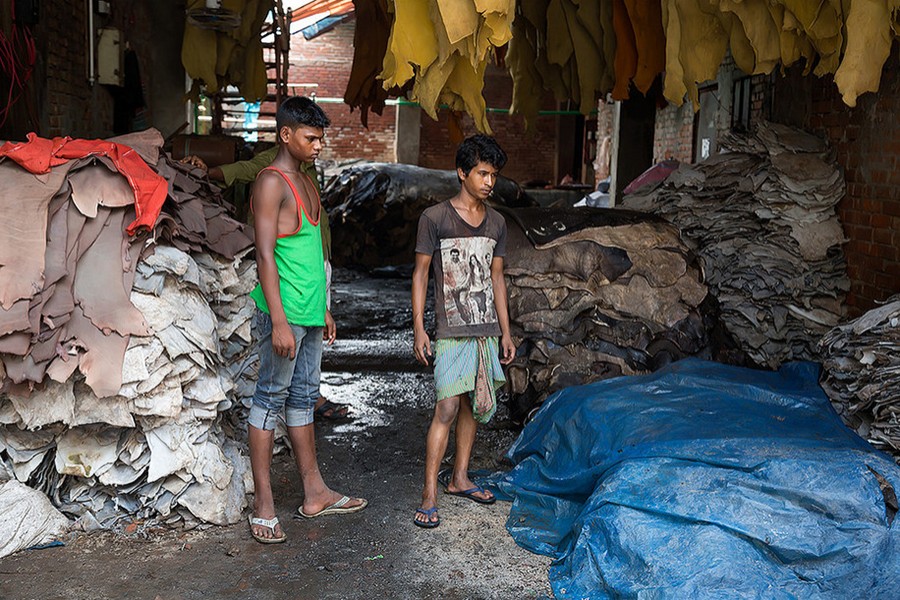The government has prepared a draft policy for the leather and leather goods sector to help raise the latter's export earnings to US$5.0 billion and contribution to Gross Domestic Product (GDP) to 2.5 per cent by 2021, officials said.
Ministry of Industries has recently finalised the draft of 'Leather and Leather Goods Development Policy 2019', which will be placed to the cabinet shortly for its approval, they also said.
The draft policy has been placed on the website seeking opinion from different quarters.
The draft has been finalised through discussion with all the stakeholders. But, people concerned can further add or give their opinions and observations, if any, regarding the policy, the officials added.
They expressed the hope that gazette notification on the final policy will be issued by the next month (March), and the policy will be reviewed in every five years.
In 2017, the government announced leather and leather goods as the product of the year.
When asked, Bangladesh Small and Cottage Industries Corporation (BSCIC) Chairman Mustak Hassan Md Iftekhar said the policy aims at promoting the potential private sector, creating new entrepreneurs and employment, attracting more investment, and thus increasing export earnings.
"Leather and leather goods is one of the promising sectors of the country after ready-made garment (RMG)," he noted.
Foreign direct investment and local private investment have helped strengthening production and export performances of local RMG sector, the draft policy mentioned.
Leather industry is yet to attain competitiveness in terms of quality and export, it said, seeking the government's support for leather sector equivalent to that given to the RMG sector.
Export earnings from leather and leather goods stood at $1.13 billion in fiscal year (FY) 2014-15, which fell to $1.09 billion in FY 2017-18, according to the draft.
The overall export earnings from the sector declined by 8.0 per cent from 2014 to 2017.
Availability of hides and skins here, their fine grain pattern, uniform fibre structure, and competitive labour cost are among the advantages that Bangladesh has, it noted.
There are huge potentials to attract both foreign and local investments in the sector, once it turns into an environment- and business-friendly one, the draft opined.
"But the sector faces problems in the collection of hides and skins and processing of the same. In fact difficulties start from the slaughtering stage."
The draft suggested formulating laws, fixing provisions of setting up modern butcher zones for animal slaughtering instead of doing the same here and there.
It also focused on installing cold storages for preservation of raw hides, and building modern and environment-friendly infrastructure for effective waste management of slaughtering houses.
Measures should be taken to set up area-based modern slaughtering houses in villages as well as field-level centres for temporary preservation, and to conduct effective training programmes especially before Eid-ul-Azha for the people concerned, the draft policy opined.
It also proposed to set up a central bonded warehouse to reduce lead time along with cost of production, and ensure availability of raw materials for the sector.
The draft also suggested short-, medium- and long-term action plans through hiring local and foreign consultants, mainly to enhance capability in environment management.
For effective implementation of the policy, it recommended formation of a 40-member coordination council, headed by the industries minister with representatives from all the ministries and authorities concerned.
The draft also suggested organising fairs locally and participating global shows to attract more buyers and investors as well as to explore new markets.
Its other proposals included signing bilateral agreements with the developed countries to get preferential treatment, and providing export credit guarantee scheme along with export promotion fund to provide loans to exporters.


